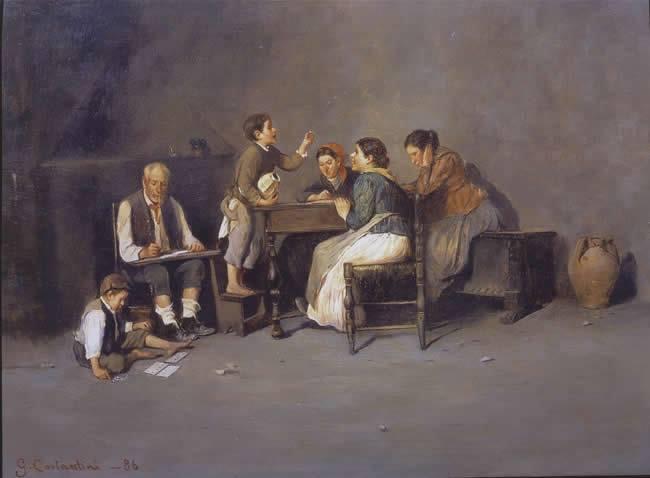Games in Naples are a timeless form of entertainment: although playful activities are the first approach to the world for the little ones, they are not only for children but often continue to play a crucial role in adulthood. Whether for pure fun or to keep the mind sharp, games offer important insights for interpreting daily life and keeping the historical memory of a community alive, recognizing itself in a specific cultural and identity space. How many meanings in a simple form of entertainment!
Popular Games in Naples
Neapolitans, always custodians of some of Italy’s most famous and ancient game traditions, loves to play games. What were the popular games in Naples? Let’s discover them together in this article.
The Carruocciolo, Pallamaglio, and Strummolo
These belong to tradition but have left a mark on the playful culture, reaching up to the present day. Group games in courtyards or outdoors represent a true historical heritage, easily traceable even in more modern forms. The most famous ones are at least three:
- Carruocciolo: Made with wooden planks and wheels, this game was very popular in the alleys of 1950s Naples, allowing children to race like lightning with their friends. Its traditional version is quite artisanal but laid the foundation for the modern skateboard, much appreciated by kids worldwide.
- Pallamaglio: Highly appreciated among street games, this pastime involved hitting a wooden ball with a mallet to make it travel a well-defined circuit, a practice that, upon closer inspection, leads us to Polo or Golf.
- Strummolo: This is a real spinning top to be spun as long as possible with the help of a string, a great classic that has come down to us intact.

Neapolitans’ Sense for Gambling
Those familiar with the Italian and Neapolitan playful world know how alive the tradition of gambling is, a practice much appreciated even in its digital version thanks to implementing an api casino into websites or trying a software for online casino, which allow users to have fun with the many formulas offered by various operators in a simple and intuitive way. Observing closely the rich and varied range of pastimes that are most successful under the shadow of Vesuvius, a special mention goes to card games and tombola.
Let’s review them:
- Scopa: Already widespread in the 18th century, when it was practically a cult pastime in Naples, Scopa is one of the most beloved Italian games. Its name comes from the fact that the winner “sweeps away” all the cards on the table. The game, now iconic and widespread throughout the country, may directly descend from Spanish playful practices like “Primiera” and “Scarabucion”.
- Tressette: The history of this game starts in Spain and reaches Italy, becoming a stable favorite among Roman and Campanian players. Again, we are dealing with a playful tradition of ancient origins: it is even mentioned in an allegorical-didactic poem by Gaetano Biondelli dating back to 1726.
- 7 and 1/2: This is one of the symbolic games of evenings spent with family and friends during the Christmas holidays. In some respects similar to Blackjack, the formula involves several rounds of betting through which players try to score as close as possible to 7 and 1/2.
- Tombola: Another great classic of festive evenings, Tombola is a game with an ancient history that takes us back to the mid-18th century, precisely to 1734, when it was introduced by King Charles III of Bourbon. The anecdote accompanying its birth is singular: tradition has it that Tombola is the result of an agreement between the king and Dominican friar Gregorio Maria Rocco. The object of the agreement was the suspension of lottery draws – which the religious considered immoral – during the Christmas period. In place of the popular pastime, Tombola was proposed, preserving the thrill of the draw while respecting the religious sobriety imposed by the Holy Christmas celebrations.
The Neapolitan playful tradition is famous worldwide for its numerous ancient-origin games, some of which are still widely practiced today. Besides the classic street games, which also gave birth to more modern pastimes like the Carruocciolo – a true ante litteram skateboard – card games like Scopa, Tressette, 7 and 1/2, and the beloved Tombola are very famous, having fascinated generations of Neapolitans and promising to do so in the future.

Lascia un commento